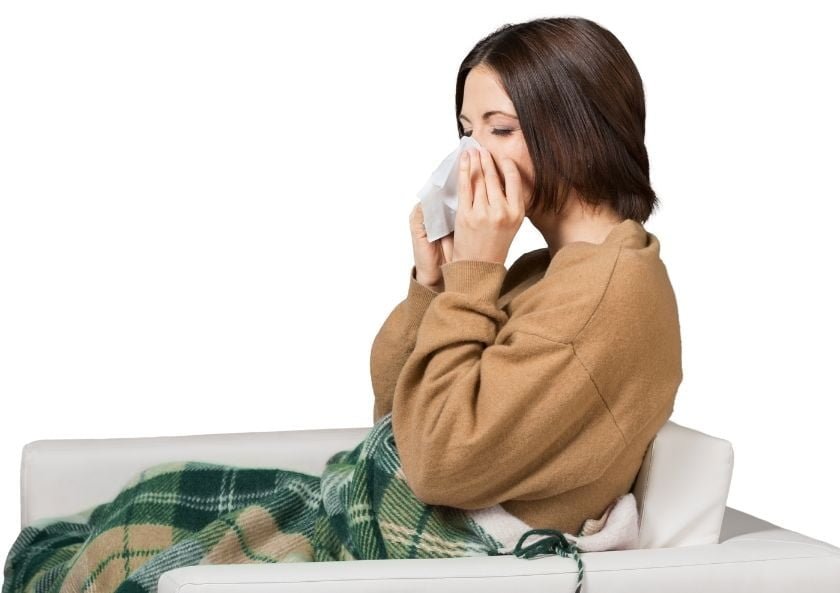Allergic rhinitis (hay fever) in adults is the most common allergic respiratory tract disease in adults in the community. Allergic rhinitis, popularly known as hay fever or allergic flu, is seen in the form of nasal discharge, itching, congestion and sneezing. In this article, all aspects of allergic rhinitis will be given.
What are the Symptoms of Allergic Rhinitis (Hay Fever) in Adults?
The main symptoms of allergic rhinitis are 5 or more sneezing, runny nose, itching and nasal congestion. There are many other complaints about allergic rhinitis. Especially in patients with allergic rhinitis for many years, other complaints arise due to damage to other organs.
What are these:
- Nasal discharge is said to be phlegm, especially in the back of the throat, which is not cleared by patients.
- Cough occurs over time with postnasal drip in patients whose complaints continue for many years.
- Fatigue is one of the most important complaints in patients whose sleep patterns are disturbed.
- Nasal bleeding can be seen as a result of damage to the nose.
- Learning difficulties are more common in many patients with concentration disorder, especially in childhood.
- Eye watering, itching and conjunctivitis develop due to the damage caused by the allergy in and around the eye.
- Frequent sinusitis is due to damage to the sinuses with allergic rhinitis in the respiratory tract.
- Bad breath is always accompanied by nasal discharge, especially in patients who breathe through the mouth at night.
- The decrease in hearing is associated with allergic rhinitis due to the damage done by the allergy to the ear.
- Taste and smell disorder is seen with nasal congestion.
- Itching in the throat and frequent pharyngitis also develop due to mouth breathing.
- Tooth decay is more common in adults as well as in childhood, due to mouth breathing.
- Shortness of breath and wheezing are seen when asthma complaints start due to allergic rhinitis affecting the lower airways.
- Snoring is one of the common complaints especially in patients who breathe through the mouth at night. In the following years, we may encounter with stopping breathing during sleep.
Allergic Rhinitis Affects Learning and Concentration
Adult patients with allergic rhinitis generally cannot sleep well due to nasal congestion, discharge, itching and repeated sneezing. Some patients have to wake up from sleep at night, some patients jump up at night due to snoring complaints and then fall back to sleep. Patients with allergic rhinitis who cannot get a full night’s sleep get up late in the morning as a result of this, they have learning difficulties and difficulty concentrating in their work lives.
Allergic Rhinitis or Flu Can Frequently Be Confused
Allergic rhinitis is often confused with flu symptoms during the winter months. It is difficult to distinguish between the two diseases. Although adult patients have allergic rhinitis, they may have to use the wrong medications and even antibiotics unnecessarily because they are considered as upper end respiratory tract infection many times. Allergic rhinitis and flu, which are often confused, can be easily separated by allergists and unnecessary drug use is prevented.
Can Allergic Rhinitis Symptoms in Adults Vary According to the Seasons?
Symptoms of Allergic Rhinitis or hay fever in adults increase in the spring months when pollen is common. In addition, although house dust allergy causes complaints throughout the year, it can lead to an increase in allergic rhinitis complaints especially in spring and autumn during the transition months.
Does allergic rhinitis (Hay Fever) cause sleep apnea?
In adults, allergic rhinitis can lead to sleep disturbances or emotional problems and problems with social activities. Night snoring frequency increases in allergic rhinitis. Snoring in adult patients with allergic rhinitis is a further risk factor for obstructive sleep apnea syndrome, and in studies conducted with polysomnographic measurements, it was found to be associated with increased sleep apnea-hypopnea index in patients.
As a result;
Allergic rhinitis symptoms in adults can be confronted with not only sneezing, runny nose, nasal itching and nasal congestion, but also different symptoms that can be more serious as it progresses.



